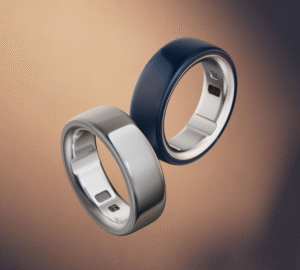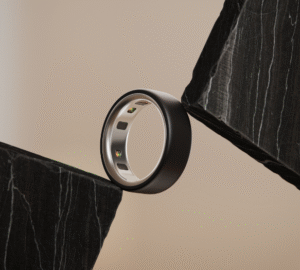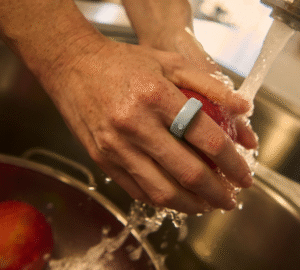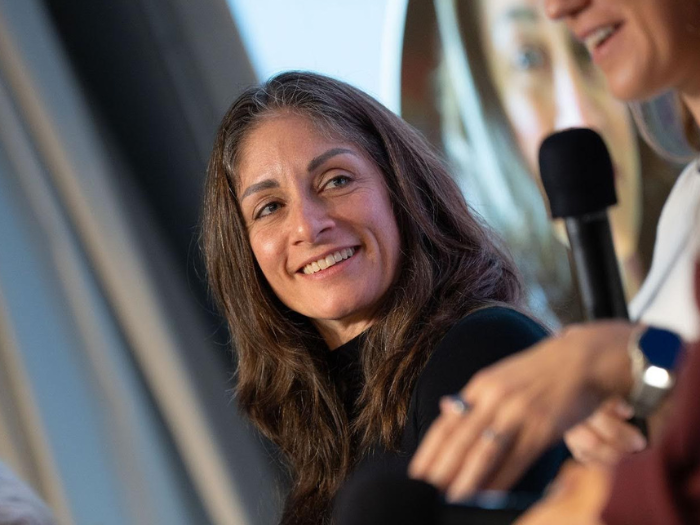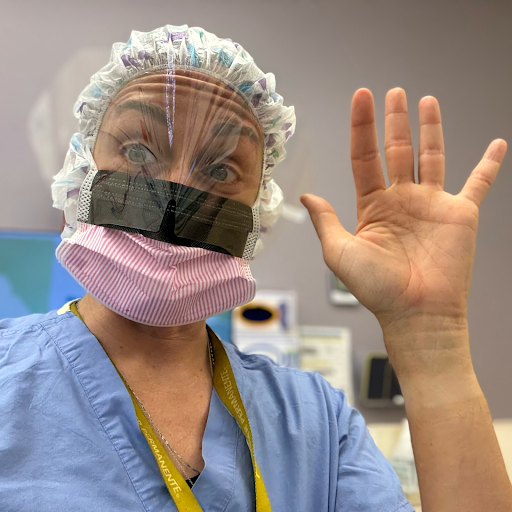Chris Curry, MD, PhD, is Oura’s Clinical Director of Women’s Health, helping shape the company’s global vision for women’s wellness across science, research, product, and healthcare partnerships. Her work ensures that women’s health isn’t treated as a niche topic—but as an essential part of every conversation about health at Oura.
Before joining Oura, Dr. Curry helped pioneer women’s health innovation at Apple, where she led the development of Cycle Tracking and Pregnancy Mode, and played a key role in the Apple Women’s Health Study. Her background bridges medicine, research, and digital health—connecting the dots between clinical expertise and cutting-edge technology.
An educator at heart, Dr. Curry has trained future OB/GYN providers as Assistant Clerkship Director at Boston University and Associate Program Director at Jackson Memorial Hospital, and she continues to teach medical students and residents through her weekly clinical practice at Kaiser.
Read on for Dr. Curry’s perspective on what women’s health really means, the lessons she’s learned from using Oura, and how AI could transform the future of patient care.
What drew you to work with Oura?
I appreciate the explicit, clear, and public message that Oura conveys: women’s health is a top priority.
What are the top one or two insights you’ve learned about your own health since using Oura?
I continue to work night shifts in the hospital, and while it has always been clear that being a shift worker is challenging, seeing the actual variation in my vital signs, Readiness Score, and other metrics the day after I stay up all night has really been jaw-dropping.
READ MORE: Can You Catch Up on Lost Sleep?
What do you wish more women knew about their health, which Oura enables them to learn?
All health is women’s health. Heart health? Women’s health. Metabolic health? Women’s health. Mental health? Women’s health. For me personally, and for Oura as a company, women’s health is way more than periods and reproduction.
READ MORE: Oura’s Commitment to Prioritizing Women’s Health
Below the surface, whether or not you feel symptoms, there’s an orchestra at play—your hormones, vital signs, and metabolism working together. There’s no single metric we should track on its own—periods, symptoms, pregnancy, vitals—none of them tells the full story individually. It’s the intersection and overlap of this information that truly makes Oura special.
In your experience, what’s the most misunderstood aspect of women’s health?
Honestly, all of it. I chose to specialize in women’s health as a physician because, end-to-end, every aspect of women’s health seemed to be misunderstood. Misunderstood while also subject to so much judgment, criticism, and control. I love the idea that, in the Oura App, on The Pulse Blog, and in the way the company presents itself publicly, there is no shame, no hesitation in discussing women’s health, in the same way they would heart health, sleep health, or anything else.
What are one or two of the top ways you believe AI will impact healthcare technology in the coming years?
For physicians: I continue to practice, and the idea that AI could review a patient’s entire electronic health record—which, if printed, would span thousands of pages—and generate a concise summary to support meaningful patient conversations sounds incredible. My hope is that we can use this technology to make person-to-person care even more personal.
#1 Oura metric or score you look at in the morning?
Readiness Score. I like that it takes into account multiple vital signs like heart rate and temperature, but also looks back at how active I was in recent days, as well as how I slept overnight. It feels like a good, single, cumulative metric if I have one thing to glance at.
Must-do morning ritual?
Wake up earlier than the kids, go out into the garden, water and weed the plants, and generally be present when the sun rises.
LEARN MORE: How to Become a Morning Person
Go-to energy hack?
I have Type 1 diabetes. When I feel too sleepy or unfocused, I need to take a moment to ensure my blood sugar levels are stable. Without stable glucose levels, there is no chance of feeling energetic!
Evening wind-down routine?
My list of books I want to read is as long as the books I have to read. I try to get a little reading for pleasure in a few nights a week.
Surprising side interest or hobby?
All things plants. My home has over 300 plants inside, and the outdoors is similar. Additionally, I’m interested in stained glass. I have my garage set up for glass cutting and soldering to create stained glass pieces.







